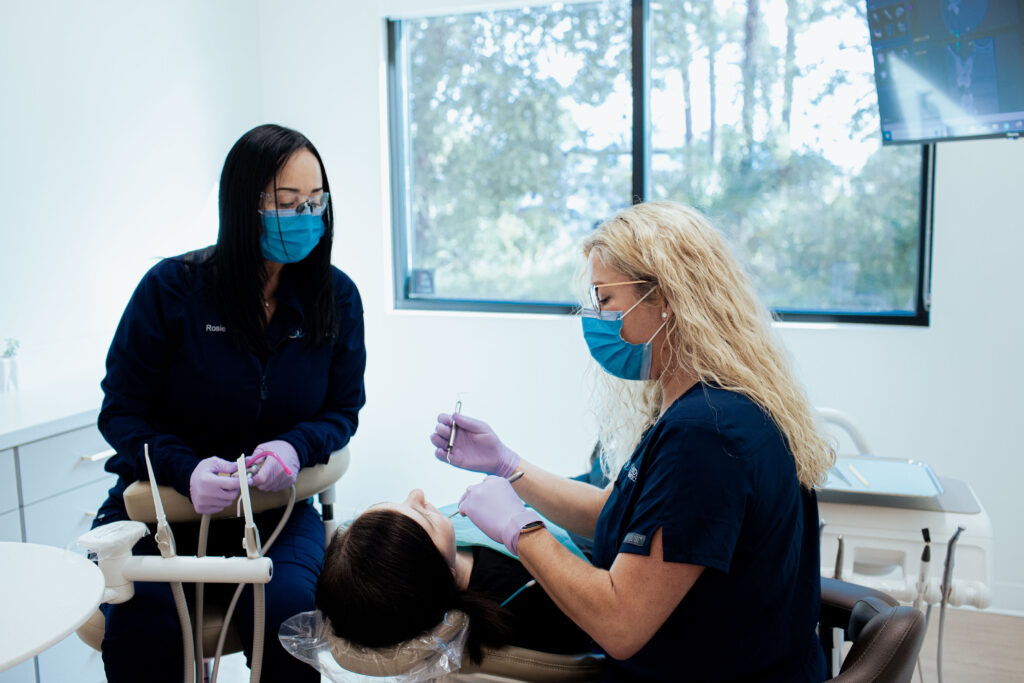Root Canals Re-treatment
Addressing Common Concerns about Endodontic Retreatment
Endodontic retreatment offers a renewed opportunity for teeth that have not fully healed or have developed new issues after a previous root canal. With our Doctors expertise at Oceanside Endodontics, we utilize the latest in endodontic techniques to carefully examine and treat your tooth, striving for optimal healing and function.
- Will endodontic retreatment be painful?
We understand that discomfort is a major concern for many patients. Our team at Oceanside Endodontics prioritizes your comfort, using advanced anesthesia techniques to ensure a pain-free experience during the procedure. Post-treatment, any discomfort is typically minor and can be easily managed with over-the-counter pain medication.
- How successful is endodontic retreatment?
Endodontic retreatment has a high rate of success, especially when performed by an experienced endodontist like Dr. Tyler and Dr. Douglas. By addressing the underlying issues of the initial treatment, we aim to achieve optimal healing and extend the life of your tooth.
- What is the recovery time after retreatment?
Recovery time varies from person to person but is generally swift. Most patients can return to their normal activities the day after the procedure. We’ll provide you with specific aftercare instructions to ensure a smooth recovery.
- How does endodontic retreatment differ from the initial root canal treatment?
Endodontic retreatment involves carefully removing the existing crown and filling material, cleaning the canal(s), and addressing any issues such as hidden canal infections or new decay. The goal is to thoroughly sterilize the canal and prepare it for a new filling and crown, ensuring a better seal and preventing future infections.
- What if endodontic retreatment doesn't work?
On rare occasions where retreatment might not be successful, other options such as endodontic surgery (apicoectomy) or even tooth extraction may be considered. Our Doctors will discuss all possible outcomes and alternatives with you to ensure you make an informed decision that aligns with your oral health goals.
